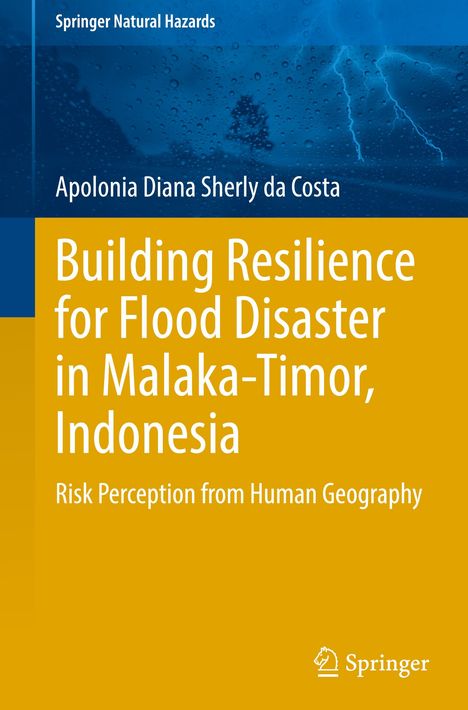Apolonia Diana Sherly Da Costa: Building Resilience for Flood Disaster in Malaka-Timor, Indonesia, Gebunden
Building Resilience for Flood Disaster in Malaka-Timor, Indonesia
- Risk Perception from Human Geography
(soweit verfügbar beim Lieferanten)
- Verlag:
- Springer Nature Switzerland, 10/2024
- Einband:
- Gebunden, HC runder Rücken kaschiert
- Sprache:
- Englisch
- ISBN-13:
- 9783031632716
- Artikelnummer:
- 11991048
- Umfang:
- 416 Seiten
- Nummer der Auflage:
- 2024
- Ausgabe:
- 2024
- Gewicht:
- 787 g
- Maße:
- 241 x 160 mm
- Stärke:
- 28 mm
- Erscheinungstermin:
- 3.10.2024
- Hinweis
-
Achtung: Artikel ist nicht in deutscher Sprache!
Klappentext
This book provides a new and different perspective on human geography as an umbrella understanding of the social science of disaster management, but it is simple to understand, where disaster-affected communities anywhere, for example in this study in disaster communities in Malacca-Timor, eastern Indonesia (female / customary land) can respond to flood disasters with the resilience capacity they have day after day.
What is presented in this book is very relevant and indicates the concept of resilience to flood disasters from the perspective of the community (human geography) through the use of applied science along with practical social methods or approaches combined with applied GIS data in the form of nine spatial distribution maps of each resilience capacity / asset that flood-affected communities have in coping with disaster impacts or risks. In the relevance of human geography, natural disasters, and spatial studies, we as readers jointly find a bright spot in this book, that natural vulnerability has an impact on physical, social, cultural, economic, religious, legal, and political vulnerabilities, where communities experiencing flood hazards need to learn to deal with and / or practice the resources they have. The resources they have in the scientific trajectory of human geography, disaster management, and spatial studies are specialized in understanding how effective, efficient, and adequate the resilience they have in the study of sustainable livelihood development, is based on the lens of social-ecological integrity. This book provides a clear and digestible understanding for all readers from interdisciplinary scientific backgrounds.


